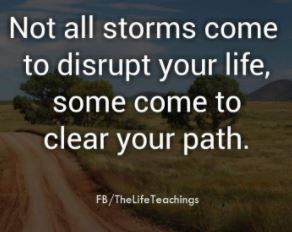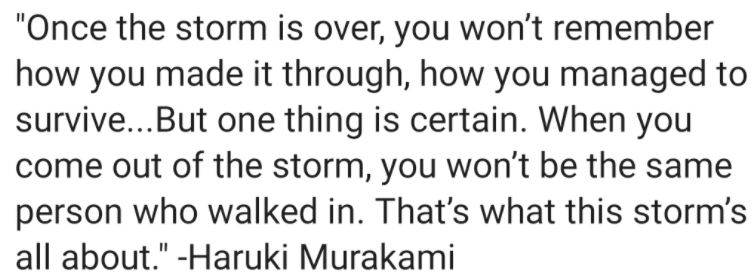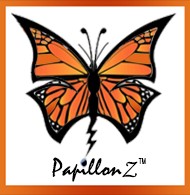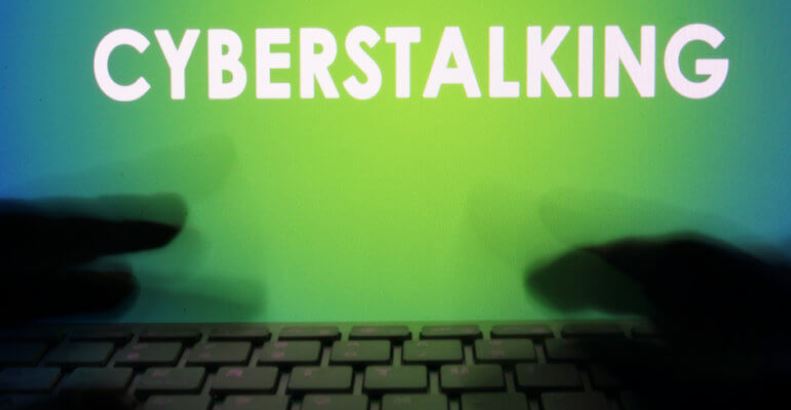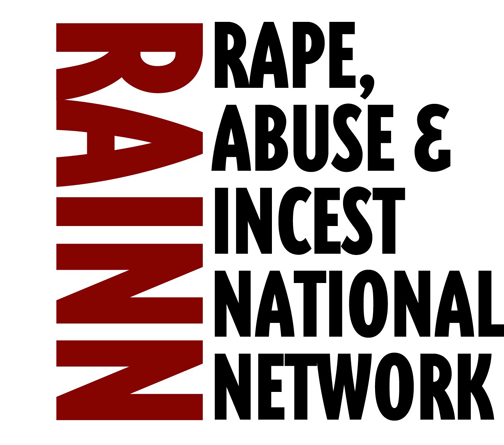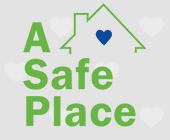Safety & Prevention
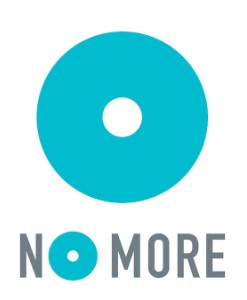
“With more than 1,400 allied organizations and over 40 state, local, and international chapters, NO MORE sparks grassroots activism, encouraging everyone—women and men, youth and adults, from all walks of life—to be part of the solution.” Click Here to learn more about NO MORE, and here How to Help Survivors
The NO MORE Silence, Speak Your Truth platform provides a safe and supportive space for people impacted by domestic violence to share their experiences, learn from other survivors, and connect to resources.
“Your story is personal and unique, but sharing it can be a healing experience for you and others.
Remember, healing is not linear and is different for everyone. It is important to stay patient with ourselves when setbacks occur in our process and forgive yourself for everything that may go wrong along the way.”
“NO MORE is a groundbreaking, global initiative comprised of the largest coalition of nonprofits, corporations, government agencies, media, schools, and individuals addressing domestic and sexual violence. We are committed to engaging, reaching, and working with people from diverse communities.” Click Here to GET HELP – Directory of domestic & sexual violence helplines & services ~ 200+ LOCATIONS AROUND THE WORLD!
Safety & Prevention
Pay Attention to Your Surroundings!!
Please watch the 1-minute video below on “Situational Awareness.“
It’s On Us
1156 15th St NW, Suite 1000 | Washington, DC 20005 | contact@itsonus.org | 202.908.5226
OUR MISSION
Educational Tools
“The goal is for these resources to be easy to use, free, and easily adaptable to different campus communities. It’s On Us has held individual interviews and focus groups with students and staff to collect information on the gaps that exist in sexual violence prevention educational materials around the country today. We have developed peer-to-peer resources that address the existing needs students identified. Each educational tool was developed based on direct feedback and needs addressed by students and drawn from the most up-to-date research and best-practices, which are cited within each document.
“Choose a topic from the list below for resources that might help you with your campus organizing or programming. “
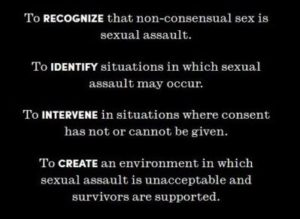
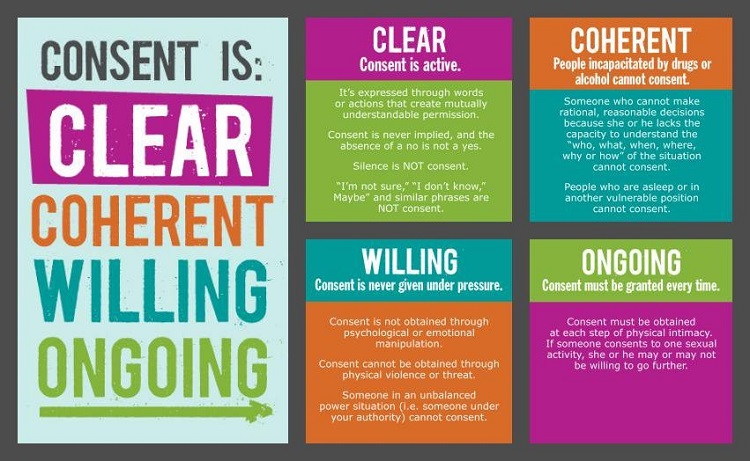
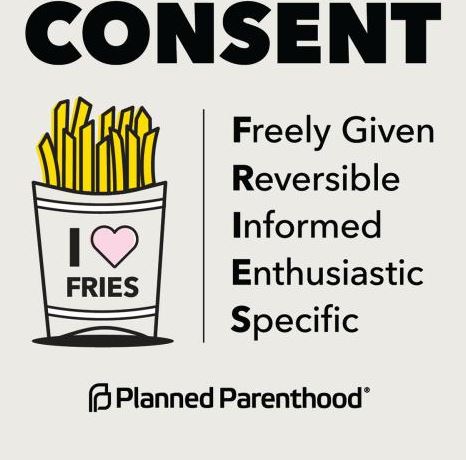
Kathy and Richard Butler
Kathy and Richard are the husband and wife team behind Comfort In The Storm. They are credentialed advocates (NACP), authors, and the parents of a child sex abuse survivor. Given their unique perspective, they facilitate comprehensive and thought-provoking Child Sex Abuse Prevention and Awareness trainings.
They also accept bookings for public speaking engagements where they offer extremely transparent insight into their family’s own journey from disclosure to healing.
Kathy and Richard are known for highlighting the data behind the epidemic while using their experiences to offer practical life application to help families develop a safety plan for their children and end this public health crisis.
Together, Kathy and Richard are on a mission to end child sex abuse – one speaking engagement, one training, one social media post, and one family at a time.
Look for their daily prevention, awareness and support tips on Instagram – @comfortinthestorm
and Posts for Survivors, Moms, Dads and more on their website: https://comfortinthestorm.com/
**Disclaimer – We provide prevention and awareness training, peer support and advocacy services. We encourage each survivor and their family to seek professional assistance from licensed therapists and legal professionals, as needed.**
Kathy Butler is a wife, mother, NACP certified child advocate, author, speaker, and the Founder of Comfort In The Storm LLC, an organization created to provide education and awareness about child sex abuse prevention.
She holds a Bachelors of Science degree in Communications and received her certificate of completion in Child Advocacy Studies Training from Athens State University. Kathy is also a Facilitator for ATL CASA (Court Appointed Special Advocate). In addition, Kathy has also completed the CHRIS 180 Trauma Stars modules, which emphasizes a trauma-informed approach to advocacy, and she is a member of the GA CJCC Taskforce.
Kathy has conducted corporate trainings for over 20 years and couples her professional speaking experience with her passion to educate others about child sex abuse awareness and prevention. Kathy is also the exclusive training partner for the Comfort In The Storm Foundation. She is also the chief content creator for the Comfort In The Storm Foundation’s social media platforms, and her articles have been published on several social media lifestyle sites.
Richard Butler is a husband, father of two girls, and a certified child advocate. Richard served in the US Army National Guard for seventeen years where he was responsible for overseeing communications and readiness training for over 2500 soldiers. He received an Associates of Arts Degree from Columbia College and is a certified para-educator. Richard also worked for the Los Angeles Unified School District for seventeen years as a Senior Recreation Director where he served some of the district’s most at-risk students and their parents by teaching leadership skills; challenge by choice and decision making skills, and he facilitated parenting classes.
Richard has also held a ministerial license for over fifteen years. He also serves as a Fulton County Cadre Facilitator and a Court Appointed Special Advocate for youth in foster care with the GA Department of Family and Children Services. In addition to his liberal studies degree, Richard has taken courses at Aenon School of Theology in family counseling and adolescent behavior; Child Advocacy Studies at Athens State University, and numerous other courses centered around being trauma-informed to meet the needs of the youth he serves.
As a training facilitator for Comfort In The Storm, Richard offers a unique prevention and awareness training experience through the lens of true girl dad.
CSA Prevention & Awareness Training
Kathy and Richard see the clear link between mental health and productivity, performance, absenteeism and overall well-being. They are firm believers that small businesses, large corporations, religious organizations, municipalities, educational institutions – including the military – will experience marked improvement in output consistency and well-being among their staff/members by helping them to keep their children safe from the trauma of sex abuse through prevention and awareness.
Their 4-hour Child Sex Abuse Prevention and Awareness training curriculum consists of twelve modules. Each module can also be delivered as a stand-alone option.
Training module topics:
– How to identify potential predatory grooming patterns
– How to teach children about boundaries and body autonomy
– Common myths about sexual abusers
– The importance of good communication and messaging in the home
– How to identify possible signs of abuse
– How to handle disclosures from a victim
– Social media safety
– Best practices for safety in schools and youth serving organizations
– Consent
– Sex trafficking
– Teen dating violence
– How to develop and maintain a safety plan for your family
Contact them via email – info@comfortinthestorm.com – to inquire about rates; schedule a training, book them for a speaking engagement at your next meeting/conference, or for written and digital media exclusives such as interviews and podcasts.
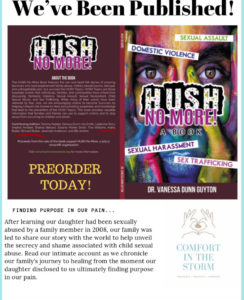

CDC
STALKING
Stalking occurs when someone repeatedly harasses or threatens someone else, causing fear or safety concerns. Most often, stalking occurs by someone the victim knows or with whom they had an intimate relationship.
Help prevent stalking by knowing the warning signs and how to get help.
https://www.cdc.gov/violenceprevention/datasources/nisvs/preventingstalking.html
FAST FACTS
https://www.cdc.gov/violenceprevention/intimatepartnerviolence/stalking/fastfact.html
Facts About Stalking
According to the National Intimate Partner and Sexual Violence Survey (NISVS):
- Stalking is common. About 1 in 6 women and 1 in 17 men have experienced stalking in their lifetimes.
- Stalking starts early. Nearly 54% of female victims and 41% of male victims experienced stalking before the age of 25.
- Stalking impacts the physical and mental health of victims. Research shows stalking can lead to depression and post-traumatic stress disorder. About 68% of female and 70% of male victims experienced threats of physical harm during their lifetime.
Common Stalking tactics can include:
- Unwanted phone calls
- Unwanted emails, instant messages, text messages, voice messages, or social media messages
- Approaching a victim or showing up unwanted, such as at the victim’s home, workplace, or school
- Leaving strange or potentially threatening items for the victim to find
- Watching, following, or tracking a victim
- Sneaking into the victim’s home or car and doing things to scare the victim or let them know the perpetrator had been there
PREVENTION IS POSSIBLE.
Everyone can work together to know, name, and stop stalking by:
- Helping others define and recognize stalking behaviors
- Mobilizing men and boys as allies in prevention efforts
- Creating and supporting safe environments within relationships, schools, and communities through programs and policies that promote healthy relationships
Need help? Know someone who does?
Contact your local service provider or a national hotline:
- Victim Connect: 1-855-4VICTIM (1-855-484-2846)
- National Domestic Violence Hotline: 1−800−799−7233 or TTY 1−800−787−3224 En Español
- The National Sexual Assault Hotline: 1-800-656-HOPE (4673)
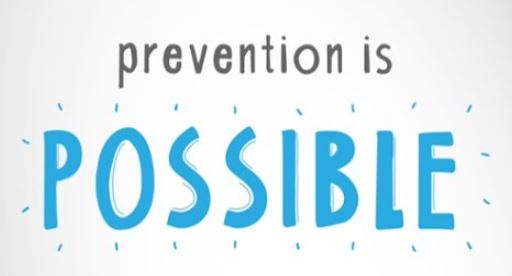
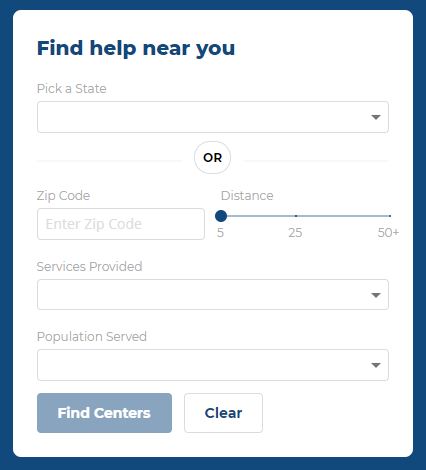
( centers.rainn.org )
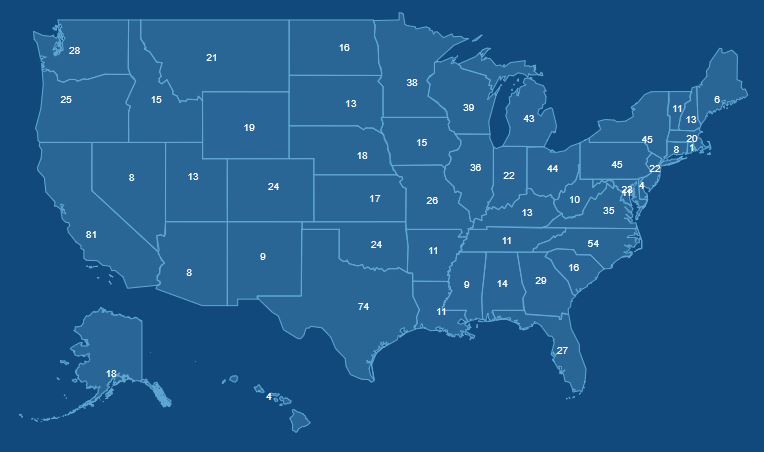
It’s helpful to have support in your own community after a sexual assault. Local service providers make it easy for you to access care, and they are knowledgeable about the laws in your area and local resources that can assist you.
RAPE, ABUSE AND INCEST NATIONAL NETWORK HOTLINE:
1-800-656-HOPE (4673)
Available in Spanish | En Español
ADVOCATES AND SHELTERS (Local Programs) listed by State, organized by County:
https://www.womenslaw.org/find-help/advocates-and-shelters
For a list and description of organizations that provide assistance for survivors and their families, visit: https://www.rainn.org/national-resources-sexual-assault-survivors-and-their-loved-ones
- Asian, Native Hawaiian and Pacific Islander Survivors
- Black Survivors
- Child Abuse/Sexual Abuse
- College Students
- Domestic, Dating and Intimate Partner Violence
- Human Trafficking
- Immigrant Survivors
- Incest
- Indigenous Survivors
- Latinx Survivors
- Legal Resources
LGBTQ Survivors
LGBTQ Survivors of Color
Male Survivors
Medical/Physical Health
Mental Health
Military Resources
Stalking
Sexual Assault Prevention
Suicide & Self-Harm
Survivors with Disabilities
“The RAINN app gives survivors of sexual violence and their loved ones access to support, self-care tools, and information to help manage the short- and long-term effects of sexual violence.
Find Support
“The app’s “Hotline” feature can connect you directly with one-on-one support from a trained support specialist on RAINN’s National Sexual Assault Hotline via phone or online chat. It’s free, confidential and available 24/7.
“You can also chat with other survivors in our peer-to-peer HelpRoom.”
Practice Self-Care
“The app’s “Self-Care” section contains exercises to help you take a moment for yourself as you heal. They include a Mood Tracker to help you reflect on how you’re feeling and figure out the best ways to care for yourself; relaxing visuals from The Monday Campaign to help you destress; and audio exercises from Headspace for calming meditation.”
Learn More
“The app’s “Learn” section includes helpful information on sexual violence topics, finding and giving support, and healing.
“You can also hear from survivors offering their own real-life stories of hope and healing.”
The RAINN app is available in the App Store and on Google Play. Download it today.
Click Here for Survivors’ Stories
Each month, RAINN highlights a member of its National Leadership Council. The NLC is a group of dedicated individuals who have shown their commitment to RAINN’s mission of supporting survivors and ending sexual violence.
Whitney Wolfe Herd is the founder and CEO of Bumble, which puts women in control of the online dating experience, and a member of RAINN’s National Leadership Council. She recently became the youngest woman to take a company public and is a passionate advocate for women leaders in business.
Bumble CEO on Supporting Survivors and Creating Safer Dating Experiences
Excerpt:
What do we need to do as a country to prevent sexual violence?
“We need to promote discussions of healthy relationships from a young age as well as empowering folks of all genders—including men and boys—to be allies. Bystander intervention should be taught on every college campus. We also need to uplift and support the crucial work of organizations like RAINN, who are not only doing the work on the ground to educate communities and provide support to victims, but urging lawmakers to take action to, for instance, end the rape kit backlog.”
STUDENT SAFETY
https://www.rainn.org/safety-students
Safety & Prevention
https://www.rainn.org/safety-prevention
Safety for Parents
Safety for Students
Warning Signs
Protecting Others
Online Safety
Safe Web Browsing
Social Media Safety
Staying Safe
What Consent Looks Like
How to Respond if Someone is Pressuring You
Safety Planning
Safety Tips for Traveling
Alcohol Safety
Let’s Talk About…for all ages
Staying Safe on Campus
https://www.rainn.org/articles/staying-safe-campus
Alcohol Safety
https://www.rainn.org/articles/alcohol-safety
Steps You Can Take to Prevent Sexual Assault
https://www.rainn.org/articles/steps-you-can-take-prevent-sexual-assault
Your Role In Preventing Sexual Assault (Bystander)
https://www.rainn.org/articles/your-role-preventing-sexual-assault
What Consent Looks Like
https://www.rainn.org/articles/what-is-consent
How to Help Someone You Care About – Tips from RAINN
https://www.rainn.org/sites/default/files/HelpSomeoneOnePageRAINN.pdf
SelfCare After Trauma – Tips from RAINN
https://www.rainn.org/sites/default/files/SelfCareOnePageRAINN.pdf
Online Dating and Dating App Safety Tips
https://www.rainn.org/online-dating-and-dating-app-safety-tips#overlay-context=
#RAINNDAY & #LetsGetLoud “Need some social media inspiration? Try pairing a few of the posts with our RAINN Day graphics below.
“Browse the #RAINNDay and #LetsGetLoud hashtags on Instagram to see how students around the country are raising awareness for Sexual Assault Awareness and Prevention Month.
#LetsGetLoud & speak out about sexual assault during #RAINNDay. Make a difference: rainn.org/rainnday
#LetsGetLoud so survivors know that they are not alone. I’m making a difference on my campus with #RAINNDay on 4/14. You can too: rainn.org/rainnday
#LetsGetLoud so survivors know that they are believed and sexual violence is not tolerated on our campus. Learn how you can help at rainn.org/rainnday
#LetsGetLoud about protecting each other. I’m bringing my campus together on #RAINNDay to help end sexual assault. rainn.org/rainnday As a college-age person, we are at a high risk for sexual violence. #LetsGetLoud and stop sexual assault on college campuses. Find out how at #RAINNDay. rainn.org/rainnday
SPREAD THE WORD ON SOCIAL MEDIA!!
“You can play an important role in stopping sexual violence and connecting survivors with the support they deserve. The best part? You only have to lift a finger. Acting with RAINN on social media gives you a chance to have a voice in the conversation about sexual violence.
Share the messages below on social media:
Connect survivors with help: The National Sexual Assault Hotline provides free, 24/7 support to survivors of sexual assault and their loved ones. Reach those who need this valuable service by sharing the hotline information on social media.
If you have been affected by sexual assault, you are not alone. @RAINN provides free, confidential support 24/7 at online.rainn.org.
@RAINN provides free, 24/7 support for survivors of sexual assault and their loved ones at 800.656.HOPE and online.rainn.org.
Sexual assault is never your fault. @RAINN now offers free, confidential Spanish support services online 24/7 at rainn.org/es.
Educate your friends: Debunk myths and educate your network about sexual violence. Share a statistic to shed light on the issue. Every 73 seconds, another American is sexually assaulted. Learn more and take action with @rainn at rainn.org. 98% of rapists will never spend a day in jail. Help bring rapists to justice with @rainn at rainn.org.
Advocate for survivors of sexual violence: Use your voice to create a ripple effect of change for survivors among your peers, in your community, or even on Capitol Hill.
Raise awareness and educate students about sexual assault resources from @RAINN with #RAINNDay! Learn more at rainn.org/rainnday.
Support funding to help victims of sexual violence and hold perpetrators accountable. rainn.org/action-center @rainn #ActWithRAINN.”
 Public Policy and Action – Interactive Map – Laws of Your State
Public Policy and Action – Interactive Map – Laws of Your State
RAINN Needs Your Voice
Countless survivors’ kits are languishing on shelves in evidence rooms and labs across the U.S. Even today, some survivors must wait nearly a decade to get their kits processed and tested. Right now, approximately 200,000 kits wait to be tested. Today, we have a chance to make a difference.
The U.S. Senate is currently deciding how much to spend on the backlog and your voice can be the difference between more funding or less.
Stand With Survivors and Ask Your Senators to End the Backlog. Justice Delayed is justice denied. Urge your senators to do their part to help end the rape kit backlog today.
Send email = https://p2a.co/1jqx2dk?p2asource=FY21_BacklogAlert_email1_all
How RAINN’s Policy Team Works Help Survivors https://www.rainn.org/news/how-rainns-policy-team-works-help-survivors
“Recently, as Congress has considered police reform legislation, RAINN has urged House and Senate leaders to include a number of additional changes to help survivors of sexual violence. RAINN’s suggestions address issues that disproportionately impact Black victims of sexual violence, especially Black girls, who are overrepresented in juvenile justice data. According to The Sex Abuse to Prison Pipeline: The Girls Story, 76 percent of girls involved with the justice system have histories of physical and sexual abuse.”

DID YOU KNOW…
YOU CAN DOWNLOAD A TECH SAFETY APP
TO PROTECT YOUR TECHNOLOGY, PRIVACY AND SAFETY!
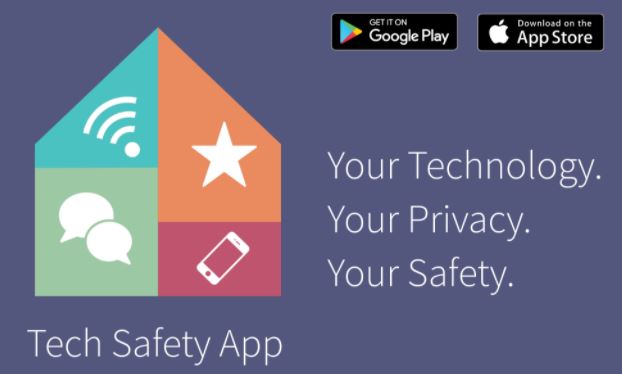
Tech Safety
(Safehorizon.org)
“Computers, tablets, phones, apps, and social network sites impact how we connect to the world every day. They can offer help, valuable resources, and support if you are experiencing domestic violence or stalking. As you use technology and plan for your safety in these situations, it is also important to be aware of the risks. The information below can help you to use technology in more informed, safer ways. These tips provide suggestions for you to be aware of. But you are the only one who can decide what is best for you and your safety.”
https://www.safehorizon.org/tech-and-cyber-safety/
- English and Spanish
- Online Safety
- Networking Safely on Social Media
- Phone Safety
You can download Tech Safety Tips in English and Spanish.
Women Against Abuse
INTERNET SAFETY
Technological advances have allowed intimate partner violence to take new forms, including access to private information, control over online accounts, and the use of electronic devices to track one’s whereabouts.
If you are seeking information about domestic violence and ways to get help, it is possible your partner can track this information.
It is vital to protect your online activities and understand the ways in which technology may compromise your safety.
Your online activity can be monitored through a number of ways, including spyware, hacking, and keystroke loggers. Even if you are careful about deleting your browser history, it is still possible for someone to gather information about what you are doing with your computer.
Whether or not someone has direct access to your computer, it is still possible for them to remotely hack into your computer.
Please review the following tips and information from the National Network to End Domestic Violence:
- If you think your activities are being monitored, they probably are. Abusive people are often controlling and want to know your every move. You don’t need to be a computer programmer or have special skills to monitor someone’s computer and Internet activities—anyone can do it and there are many ways to monitor with programs like Spyware, keystroke loggers and hacking tools.
- It is not possible to delete or clear all the “footprints” of your computer or online activities. If you are being monitored, it may be dangerous to change your computer behaviors such as suddenly deleting your entire Internet history if that is not your regular habit.
- If you think you may be monitored on your home computer, be careful how you use your computer since an abuser might become suspicious.
- You may want to keep using the monitored computer for innocuous activities, like looking up the weather. Use a safer computer to research an escape plan, look for new jobs or apartments, bus tickets, or ask for help.
- Email and Instant/Text Messaging (IM) are not safe or confidential ways to talk to someone about the danger or abuse in your life. If possible, please call a hotline instead. If you use email or IM, please use a safer computer and an account your abuser does not know about.
- Computers can store a lot of private information about what you look at via the Internet, the emails and instant messages you send, internet-based phone and IP-TTY calls you make, web-based purchases and banking, and many other activities.
- It might be safer to use a computer in a public library, at a trusted friend’s house, or an Internet Café.
The above information is taken from the National Network to End Domestic Violence, Internet and Computer Safety page.
In addition, learn about Facebook safety with the Privacy and Safety on Facebook guide from the National Network to End Domestic Violence!
Internet Safety
Web Browsers store a history of all the pages you visit during your time on the Internet. It is imperative that you remove this information from your computer so that an abuser cannot discover it. Please remember to do this procedure before you log off the Internet.
CAUTION: If you are using your abuser’s computer, you may be leaving a trail that can be traced to this web site. Be sure to clear the view history of the web browser when you are through.
Instructions for Clearing the View History in your Web Browser:
Using the toolbar of your web browser, find the menu selection that gives you view options.
- Microsoft Internet Explorer: Use the View button, then select Options, then Navigation. In the History section, select Clear History, then OK.
- Netscape Navigator: Use the Options button, then select Network Preferences, then both Clear Memory Cache and Clear Disk Cache, then OK.
- Firefox: Open the Tools menu, then select Options. Open the Privacy tab and select “Cache” sub-category. Click the “Clear” button and then click OK to clean cache.
- AOL: Click on the Members menu, click on Preferences click on the www icon; select Advanced and then Purge Cache.
Be aware that this is not foolproof. An observant computer user may notice that the history is gone, and get suspicious.
If you feel you may be at risk if your abuser discovers you were using the Internet, call 911 or RAINN at 1.800.656.HOPE, The Rape, Abuse & Incest National Network.
(Source: aftersilence.org
“The above information has been adapted from mcleancountyil.gov, and is provided for guidance only.”)
A Safe Place
HOTLINE 855-723-7529
PO Box 1271 | Wrightsville Beach, NC 28480 | 855-723-7529 ext 3 | info@asafeplacetogo.com
Empowering Girls and Young Women
We are focused on prevention, advocacy, and restoration to assist victims of commercial sexual exploitation and domestic sex trafficking.
A Safe Place in Wilmington, NC also has 1-hour training online, entitled “Online Predators, Trafficking and Social Media” – available virtually in the morning, afternoon, or evening.
Someone from the FBI and the DA’s office is usually involved.
Please contact dawn@asafeplacetogo.com or 910-233-8612.
Click Here to read “A Parent’s Guide: Teen Acronyms, Emojis, Hashtags and Slang and Online Safety Guidelines“
We believe in providing a safe place for victims of commercial sexual exploitation and domestic sex trafficking. To us, this means not only meeting the physical needs of survivors, like housing and clothing, but it also means a place where girls and young women can get medical counseling, mental health services, occupational training and more.
At A Safe Place, we also provide training and education to our community in order to raise awareness about sex trafficking and to ensure that victims get connected to programs and people who can help them.
We partner with organizations and companies in our community and build relationships with law enforcement because the work that we do is only possible with a holistic approach and a genuine understanding of the signs of sex trafficking in our city.
A Safe Place is a 501(c)3 organization located in Wilmington, NC.
Our Vision
To create a world free from commercial exploitation and human trafficking through community partnerships, empowerment, and opportunity.
Our Mission
To be an empowerment organization for young women and girls focused on prevention, advocacy, and restoration to assist victims of commercial sexual exploitation and domestic sex trafficking.


For Parents, Family Members, Teachers, Educators, Young Adults & Teens
Internet Safety for Kids | How to Keep Your Kids Safe Online
(Source: Consumernotice.org | Written By : Terry Turner | Edited By : Kim Borwick | Last Modified: August 18, 2021)
Threats to children’s internet safety include invasions of privacy, cyberbullying, sexting and harassment. Options to protect your children include parental controls, apps and tracking software. But the most effective way to keep your kids safe is to talk with them about online risks, how to avoid them and how they can come to you when something goes wrong.
Internet safety for kids depends on parents being aware of online risks and understanding how to help their children and teens avoid them.
Almost every American child and teen has access to the internet. They socialize in online games or on smartphones just as they would on a playground. They live largely in a digital community. But like any community, there are risks and dangers.
Parents are the best suited to monitor kids’ online activity. They are also the most trusted adults most kids will turn to if they experience online dangers. Understanding what your children or teens do online is vital to protecting them from digital threats. . .
What Are Kids Doing Online?
~ 30 percent have used the internet in ways their parents wouldn’t approve
~ 21 percent have visited sites where they can chat with strangers
~ 17 percent have visited porn sites
~ 11 percent have visited sites that offer ways to cheat on homework
~ 4 percent have visited online gambling sites
Source: Children’s Internet Usage Study, Center for Cyber Safety and Education (Grades 4-8)
TOPICS in article:
♦ How Children and Teens Get Online
♦ Online Dangers to Discuss with Your Kids
♦ How to Set Rules
♦ Steps You Can Take to Protect Your Children Online
♦ Using Tech and Apps to Protect Your Kids Online
♦ Monitoring, Tracking and Limiting Your Child’s Online Activity
♦ Filtering Out Inappropriate Content
♦ How to Teach Your Kids to Use Their Smartphones Responsibly
♦ Your Child’s First Smartphone | 5 Things to Think About
♦ Make Sure Your Teen Understands the Dangers of Texting and Driving
♦ Teaching Your Teens How to Use Social Media Safely
♦ Tips for Teen Safety on Social Media
♦ Cyberbullying Prevention
♦ Signs Your Child Is Being Cyberbullied
♦ What Parents Can Do to Deal With Cyberbullies
♦ Teach Your Child How to Stand Up for Cyberbully Victims
♦ How to Talk to Your Teens About Sexting | 5 Things to Tell Your Teens About Sexting
♦ What You Should Know About Your Kids and Online Gaming
♦ How to Keep Your Child Safe in Online Gaming
♦ What to Do If Your Child’s Safety Is Threatened Online
NATIONAL DOMESTIC VIOLENCE HOTLINE
Internet Safety – The Hotline Call 1.800.799.SAFE (7233)
Internet Safety ~ Stay safe. Stay connected.
Technology and the Internet are powerful tools for anyone experiencing domestic violence. They can be essential resources to access help and information, and valuable platforms to connect with friends, family members, advocates, and service providers.
Unfortunately, they can also be used by abusive partners to begin, continue, or escalate abuse, making it all the more important to ensure your safety online.
Read more at Internet Safety – The Hotline
Love is respect ~ Call 1.866.331.9474
- Text: LOVEIS to 22522
- Live Chat
Safety online – love is respect
Most of us spend a lot of time online. Pretty much everything we do can now be done on the Internet, including accessing information, keeping in touch with others, and getting help when we need it. Unfortunately, such frequent use (and the ways in which information is collected every time we go online) means partners who are abusive have more ways than ever to access your information and monitor your movements and behaviors.
Remember:
- Your computer and cell phone use can be monitored without you knowing it.
- Your history can never be completely erased from a computer or device, even if you browse in “private” or “incognito” mode.
- Email can be intercepted like physical mail.
- Global Positioning System (GPS) trackers can be placed in your car or on items like your purse or cell phone.
- love is respect advocates are available 24/7 to help you identify ways to take extra precautions when using technology.
Always remember to keep your safety in mind when contacting love is respect and accessing our services.
Be sure to clear any websites you wouldn’t want your partner to see from your browser history, especially after visiting this website.

Keep your Online Life Private.
This is definitely hard to do with Facebook, Instagram, Twitter, and the self-disclosure they all promote. You may already know by now that putting your address on the Internet is incredibly dangerous, but also think twice about sharing your current location.
Kristin Jackson once saw an Instagram public post with the caption that read, “So drunk, must get home,” and she had tagged her location!
Try to refrain from tagging your location every time you post, and definitely use the privacy options to your advantage. If anything, it will keep you safe and give you an element of mystery.
Source:
Jackson, Kristin Collins. https://www.bustle.com/articles/32325-10-ways-to-help-protect-yourself-from-sexual-assault-even-though-you-shouldnt-have-to. “10 Ways to Help Protect Yourself From Sexual Assault — Even Though You Shouldn’t Have To.” (Sept. 25, 2014.)
Cyber Civil Rights Initiative ~ HOTLINE: 1-844-878-CCRI (2274)
Cyber Civil Rights Legal Project
“The Cyber Civil Rights Legal Project helps victims of nonconsensual pornography by providing them legal assistance on a pro bono basis. The Cyber Civil Rights Legal Project is founded on the principle that people have a right of privacy in their intimate photographs and videos, and that the public, online dissemination of that media without consent is an invasion of that sexual privacy amounting to a “cyber civil rights” violation.”
US Attorneys who are providing pro bono legal assistance: https://www.cybercivilrights.org/professionals-helping-victims
LEGAL NOTICE:
Revenge porn is becoming (OR has already become) a federal crime as the SHIELD Act has been passed. The SHIELD Act is an amendment to the Violence Against Women Reauthorization Act of 2021.
The Violence Against Women Reauthorization Act of 2021 criminalizes the nonconsensual distribution of nude or sexually explicit images. Offenders could be imprisoned for up to two years.
“For victims of nonconsensual pornography, technology today makes it possible to destroy a person’s life with a single click,” Rep. Jackie Speier, D-Calif., said in a statement. Speier continued, “The damage caused by these attacks can crush careers, tear apart families, and, in the worst cases, has led to suicide.”
National Center on Sexual Exploitation
1201 F St NW, Suite 200 | Washington, DC 20004
202.393.7245 | PUBLIC@NCOSE.COM
Home – NCOSE (endsexualexploitation.org) | Blog Articles
Resources | Survivor Resources, Prevention and Recovery, Ally Resources, Press Resources
The National Center on Sexual Exploitation (NCOSE) is the leading organization exposing the links between all forms of sexual abuse and exploitation. We are a nonprofit organization with a focus on a wide-ranging and interrelated array of topics including, but not limited to, child sexual abuse, child-on-child harmful sexual behavior, compulsive sexual behaviors, demand for sexual exploitation, illicit massage businesses, image-based sexual abuse, institutional sexual abuse, men’s violence against women, the neurological impacts of sexual trauma, the public health harms of pornography, prostitution, sex trafficking, sexual harassment and assault, sexual objectification, stripping, as well as the intersection of these issues with technology.
We are nonpartisan and nonsectarian because the fight to end sexual exploitation knows no political or religious boundaries. The inherent harms and oppression of sexual abuse and exploitation impact people regardless of their age, nationality, race, sex, sexual orientation, or creed.
We love people and partnerships. This is why we work relentlessly to build a diverse movement that welcomes all people committed to defending human dignity.
Our Vision
The National Center on Sexual Exploitation believes in a world free from sexual abuse and exploitation.
We believe every human being deserves the opportunity to live life to its fullest potential: to pursue dreams and ambitions; express creativity and hone talents; seek beauty, truth, and faith; experience hope, joy, and love with family and friends—to thrive. Such a vision requires not only individuals and institutions that work towards its realization but also a culture that embraces its responsibility to preserve and protect human flourishing. We aspire to create that culture.
Our Mission
Defending Human Dignity. Opposing Sexual Exploitation.
One of the Dirty Dozen 2021
Discord – NCOSE (endsexualexploitation.org)
Discord, a popular communication service used by over 100 million active monthly users, has exploded in popularity since the onset of COVID-19 sent most of the world into the digital space. But what started in 2015 as a haven for gamers has quickly morphed into a virtual meeting spot where sexual exploitation and abuse thrive. Now, exploiters go to Discord to groom children for sexual abuse or sex trafficking, and to trade pornography—including child sexual abuse materials, non-consensually recorded and/or shared pornography, and more.
Student Safety
https://www.rainn.org/safety-students
Safety & Prevention
https://www.rainn.org/safety-prevention
Online Safety
Safe Web Browsing
Social Media Safety
Online Dating and Dating App Safety Tips
https://www.rainn.org/online-dating-and-dating-app-safety-tips#overlay-context=
Online Safety (for Teens) – Nemours KidsHealth
(kidshealth.org/en/teens/internet-safety.html)

KEEPING CHILDREN SAFE ONLINE
(US Dept of Justice)
From Keeping Children Safe Online (justice.gov)
“Due to COVID-19, kids and adults are online more than ever, often unsupervised in the same space.
“Help kids stay safe.”
“Parents should stay involved in their digital world, know the apps they use, use parental controls where possible, and block and report people who make them feel uncomfortable.
“Kids should talk with a trusted adult so they understand online risks, only chat with people they know, ensure their online accounts are private, block people they don’t know or trust, and trust their instinct—if something makes them feel uncomfortable, tell a trusted adult about it.
“Kids and parents should stay alert—people aren’t always who they seem in online environments where identity is easy to fake.
“Stay safe at home. Stay safe online.
“To report an online child sexual exploitation offense, call 911 or go to report.cybertip.org.”

A Safe Place in Wilmington, NC also offers 1-hour training online, entitled “Online Predators, Trafficking and Social Media” – available virtually in the morning, afternoon, or evening.
Someone from the FBI and the DA’s office is usually involved.
Please contact dawn@asafeplacetogo.com or 910-233-8612.
Click Here to read “A Parent’s Guide: Teen Acronyms, Emojis, Hashtags and Slang and Online Safety Guidelines“
For Parents, Family Members, Teachers, Educators, Young Adults & Teens
For More Information on Human Trafficking Awareness & Prevention
and
ONLINE SAFETY
https://youth.gov/youth-topics/trafficking-of-youth/the-problem
https://www.safehorizon.org/get-informed/human-trafficking-statistics-facts/#definition/
https://www.dosomething.org/us/facts/11-facts-about-human-trafficking
LGBTQ+ – https://polarisproject.org/
Survivor Care*Prevention Education*Strategic Collaboration with Adults – https://love146.org/
Short video explaining why children are most of the victims of trafficking – Hotline –
For Parents, Family Members, Teachers, Educators, Young Adults & Teens
For More Information on Human Trafficking Awareness & Prevention
and
ONLINE SAFETY
Frederick Douglass Initiative teaching awareness and prevention strategy to children in schools
https://www.covenanteyes.com/2016/01/22/porn-and-sex-trafficking-10-facts-from-the-experts/
Video from 10 Facts
in 56 Human Trafficking Facts
From 56 Human Trafficking Facts:
24. Sex traffickers often recruit children because not only are children more unsuspecting and vulnerable than adults, but there is also a high market demand for young victims. Traffickers target victims on the telephone, on the Internet, through friends, at the mall, and in after-school programs.[17]
28. Sex traffickers use a variety of ways to “condition” their victims, including subjecting them to starvation, rape, gang rape, physical abuse, beating, confinement, threats of violence toward the victim and victim’s family, forced drug use, and shame.[14]
49. The FBI estimates that over 100,000 children and young women are trafficked in America today. They range in age from nine to 19, with the average being age 11. Many victims are not just runaways or abandoned, but are from “good” families who are coerced by clever traffickers.[17]
52. Human trafficking victims face physical risks, such as drug and alcohol addiction, contracting STDs, sterility, miscarriages, forced abortions, vaginal and anal trauma, among others. Psychological effects include developing clinical depression, personality and dissociative disorders, suicidal tendencies, Post-Traumatic Stress Syndrome, and Complex Post-Traumatic Stress Syndrome.[14]
Shared Hope
- Influencing Federal and State Policy
- Victim’s Access to Services
- Ending Demand
- Combating Child Sex Trafficking Online
- Domestic Minor Sex Trafficking Research
THORN Digital Defenders
(Ashton Kutcher and Demi Moore, Co-Founders) THORN
Text “NOFILTR” to 741741 for immediate assistance for “Grooming”
If you’re being sextorted, GET HELP NOW – TEXT “THORN” TO 741741
Thorn, aka Digital Defenders of Children; Ashton Kutcher’s organization driving tech innovation to fight child trafficking and the sexual exploitation of children.
About Our Fight Against Sexual Exploitation of Children
Our Work to Stop Child Sexual Exploitation
We build technology to defend children from sexual abuse.
We refuse to live in a world where the technology exists to help kids but simply isn’t being used. We build powerful products, lead new programs, maintain essential resources, and develop awareness campaigns to attack the issue from all sides. Technology must be part of the solution.
ACCELERATE victim identification. We identify critical technical needs and produce tools that allow law enforcement to stay ahead of perpetrators and identify more children.
Since 2016, Spotlight has helped law enforcement find kids faster. Our flagship product was developed based on the insights gained from our first survivor survey.
Spotlight accelerates victim identification and helps law enforcement make the best use of the critical time they have to focus on finding more child sex trafficking victims.
EQUIP platforms. Many small and mid-size companies do not have the resources or knowledge to implement child safety procedures and tools, making their platforms vulnerable to abusive content and behavior. We offer resources and tools for companies to help protect kids on their platforms.
Our first step in equipping platforms is the Sound Practices Guide, offering best practices and concrete steps to for companies of all sizes to help protect kids on their platforms, including the Industry Hash Sharing program and PhotoDNA.
Thorn’s commercial product, Safer, is the first comprehensive solution for platforms to identify, remove and report child sexual abuse material.
EMPOWER the public. Here’s where we share what we’ve learned. It’s all about preventing further abuse. We’re getting the word out – increasing awareness and starting conversations.
THORN’s Vision
Eliminate child sexual abuse material from the internet.
Working to deter the problem ~ Child Sexual Abuse Material
The internet has made it too easy for abusers to share child sexual abuse material (legally known as child pornography). They create images and videos with an audience in mind. That content gets shared widely beyond the initial targets – recirculating the image, perpetuating the abuse and retraumatizing the child.
Help prevent child sexual abuse.
BE AWARE.
Educate yourself on child abuse and the intersection with technology.
TALK.
Stay active and engaged with your community to keep an eye out for signs of child abuse. Talk to your children about abuse and the unique risks on the internet.
GET TO KNOW THE CHILDREN IN YOUR COMMUNITY.
They won’t be able to ask for help once something goes wrong and will need you to have your eyes open.
SUPPORT ORGANIZATIONS
… working to prevent abuse and provide survivors with resources. Get to know those in your community as well.
Do you know what GROOMING is?
Do you know what SEXTORTION is?
What is grooming?
Text NOFILTR to 741741 for immediate assistance.
A term used broadly to describe the tactics abusers deploy through the internet to sexually exploit kids and teens.
See also: online safety, grooming, groomer
https://nofiltr.org/
https://nofiltr.org/grooming/#talks
https://nofiltr.org/resources/
We’ve all heard about it or seen it (maybe on snap, in school, or even with friends) someone’s nudes are getting passed around. But who is to blame?
What about the rando that thought it’d be cool to pass it on to 10 friends in a group chat?
Nah, sharing someone else’s nudes is never okay.
STOP SEXTORTION
SEXTORTION
YUP. IT’S A THING.
It’s the threat to reveal intimate images to get you to do something you don’t want to do
If you’re being sextorted, GET HELP NOW – TEXT “THORN” TO 741741
Get Help
From: Stop Sextortion
SEXTORTION
YUP. IT’S A THING.
It’s the threat to reveal intimate images to get you to do something you don’t want to do
TIPS FOR ADULTS
Talk to your kids about sextortion.
THIS IS HARD, BUT YOU’RE ALREADY DOING GREAT BY BEING HERE.
Your children are safer because of your support and guidance through all of life’s challenges. Safety in the digital age is new, and chances are your children feel more comfortable navigating digital communities than you do, while knowing less than they need to stay safe. There are a few things you can do to help your child avoid getting into tricky, and sometimes dangerous, situations like sextortion.
You play an important role in students’ lives and as new threats emerge, it is important to stay ahead of the trends. Teens clearly told us that you are often the first line of defense.
When an individual experiences sextortion, they’re often experiencing it simultaneously on multiple platforms. We know technology can be misused, so it is important to adopt industry standard best practices so that bad actors have fewer places to hide and victims can be adequately protected. Be sure to invest in your safety policies early to keep sextortion off your platform.
Our kids are trying to navigate community and connection in the digital age, while we’re trying to keep up with keeping them safe. Unfortunately, technology moves faster than our laws are able to respond to new abuse trends. By learning about these trends – like sextortion – and including them in your policy agenda, you can help kids feel safe and supported.
From: Stop Sextortion
THORN FOR PARENTS
Announced on September 9, 2021. . .
For parents concerned about their child’s digital safety as they grow up online, we’ve compiled resources, developed conversation guides, and much more to help parents navigate even the most awkward conversations with care and confidence. Here for your talks, awkward pauses and all.
BE YOUR KID’S SAFETY NET
Kids today face a very different set of challenges. There’s a whole new landscape where a child’s relationship with technology and normal sexual development overlap, with a whole new set of experiences online. And they need your help to navigate it safely.
TOPICS: Sexting & Nudes | Device Access & Monitoring | A Balanced Approach |
Additional Resources
- Advocates and Shelters | WomensLaw.org (drop-down menu for your State)
- Click here to enter your zip code: Find Domestic Violence and Abuse Help, Information and Stats (domesticshelters.org)
Domestic Violence Support | The National Domestic Violence Hotline (thehotline.org)
- National Organizations | WomensLaw.org (listed by subject matter)
- Chat Rooms and Message Boards | WomensLaw.org
- VictimConnect (serves victims of crime in US (including assault, abuse, domestic violence, teen dating violence, trafficking, stalking, etc.), and make local referrals.
Mental Health Resources

